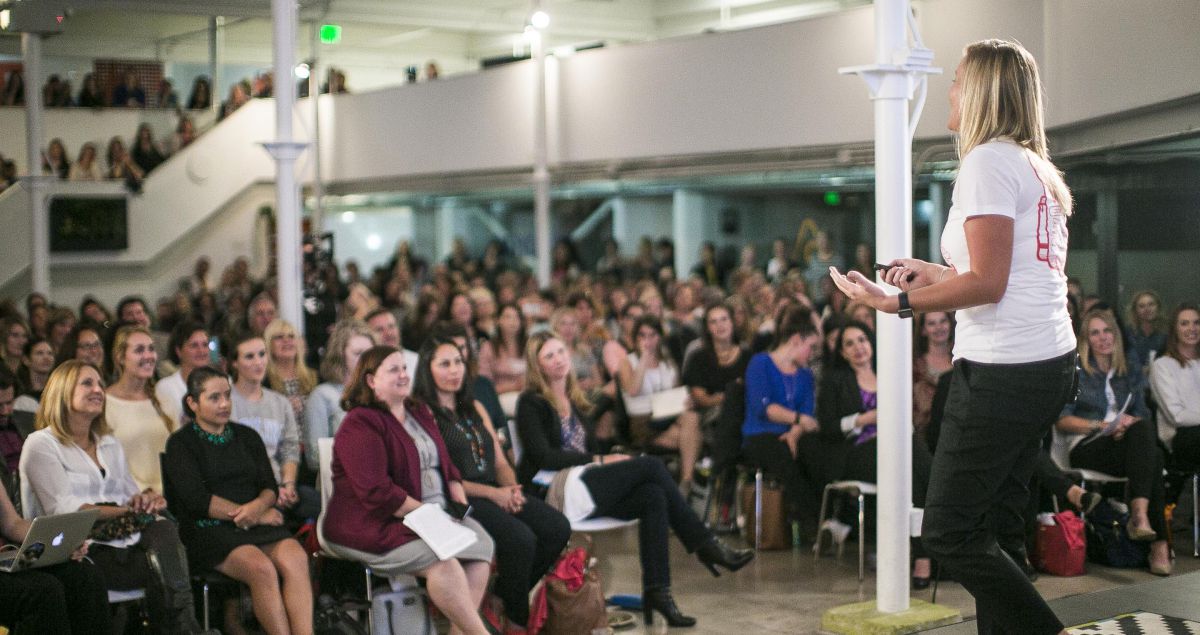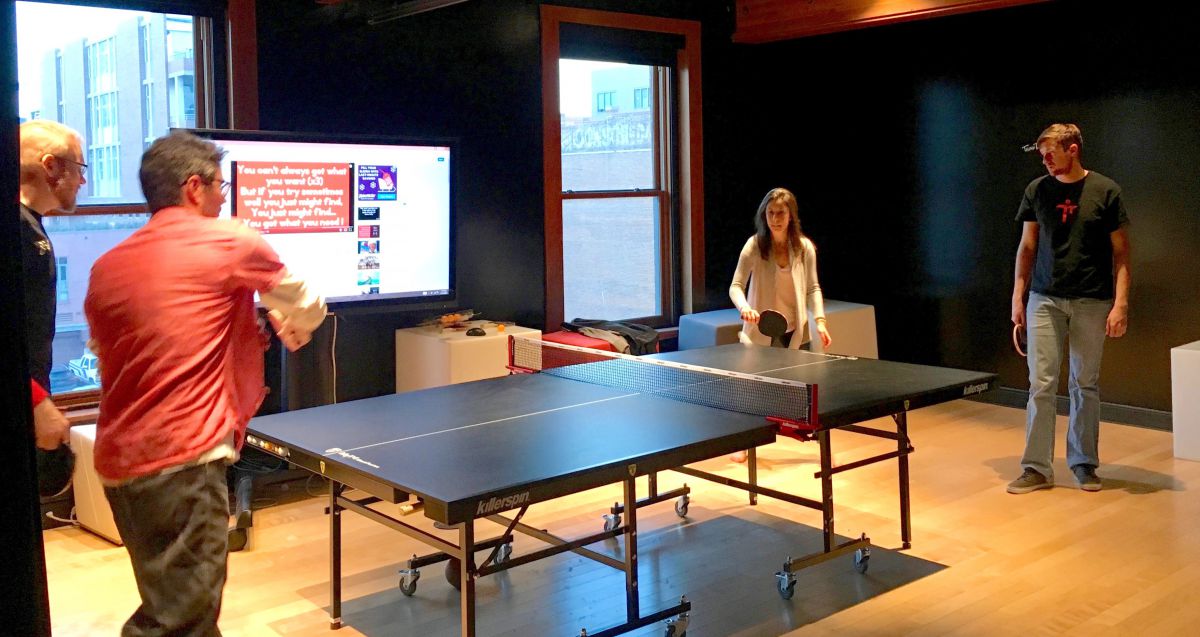
Networking events are one of the best ways to get your name out there, make new friends and contacts or even find a job. We’re big fans ourselves, between our startup showcase events and our regular meetup, Built In Brews.
But sometimes, planning or attending a networking event can be more stressful than it’s worth. We caught up with leaders of some of Colorado’s top events, as well as startups that host their own, to gather some tips for hosts and attendees alike.

Hosting an event?
When it comes to hosting an event, planning ahead is absolutely crucial. You’ve got to consider factors like venue, marketing, catering, programming and more. It’s a lot to juggle, especially if you’re planning your first-ever event.
“In order to keep track of all the moving parts, make a detailed list for literally every stage of your event — pre-event, arrival, networking, content, etc — and determine what you and your guests will need to make it a smooth, successful event,” said Elana Krasner, marketing manager for Kenzan.
Once you’ve got a list in place, it’s time to create a detailed event page with all the information your members need. Whether you’re posting your event on Built In, Meetup or another site, make sure the event page is as complete as possible, including photos and an email address where interested guests can contact you.
“Members are less likely to RSVP if they don’t have all the information they need, and are unlikely to message the host if they have a question,” said Cara Jo Miller, founder and organizer of Girl Develop It’s Boulder/Denver chapter.
Your event information should also include a guide to how accessible your event will be. If your event’s location is tricky to find within a building, Miller recommends creating a wayfinding system to help guide attendees to the right space.
Enlisting your team in the setup can make a huge difference, too. Ask the sales or marketing team for help figuring out the best way to display welcome materials, and get your product team involved in drafting up an agenda or a layout.
“Make it easy to identify team members, by wearing company t-shirts or different colored name tags, so guests know who to talk to if they have questions about the company or if there is a problem,” said Sam Schreiner, people person for iTriage/Wellmatch.
Once attendees arrive, facilitating the event will make it worth their while — and will help you stand out as an excellent host. Most networking event attendees go with the goal of meeting other people in hopes of making strong connections.
“As the host, your job is to facilitate those connections,” said Krasner. “Creating a comfortable space for people to interact is just one part of that. In advance of the event, review the RSVP list and familiarize yourself with names, titles and companies to make it easier to make introductions. Take it one step further and research attendees on LinkedIn to find out useful tidbits to spark conversations and connect people who you think will benefit from meeting. During the event, make sure everyone is talking to someone. Look for the introverts or wallflowers and help them connect with others.”
After the kegs are empty and the final name tag has been peeled off someone’s shoulder, it’s important to keep the momentum going. Whether you’ve got an attendee listserv, a Facebook event page or a Meetup group, make sure you thank attendees and encourage them to connect with one another.
“I launched a virtual community on Slack so that even though we have monthly events, our members get to engage daily in between physical events,” said Women Who Startup founder, Lizelle Van Vuuren.
Creating a sense of community around your event will keep attendees coming back and will boost the impact your events have on the community at large.

Tips for attendees
If you’re a developer looking to make connections or learn something new, think outside the standard hack night box.
“Attend local panels or even be on them,” said Jamie Walkowwiak, Warren Baltz and Adam Shamblin, the dev leads at ThinkTopic. “We find them more personal and interactive than just a technical meet-up.”
Speaking on a panel will position you as a thought leader among your peers, and you’ll have the opportunity to connect with attendees on a deeper level.
One of the worst things about going to networking events is wandering around the room, drink in hand, hoping someone will come up to you and start talking. One of the easiest ways to fix that? Make the first move.
“It is not always easy to strike up a conversation with someone you don't know, but I know that I am always relieved when someone makes the effort,” said Schreiner. “It will be more fun if you get the chance to meet a bunch of people, and you will learn about some interesting things going on in town.”
Furthermore, Schreiner said it’s important not to make assumptions about anybody you come across at the event.
“The woman you are talking to could very well be an awesome software engineer, and the 16-year-old may be the co-founder,” she said.
Introverted? It’s not the end of the world. If the thought of going to a networking event makes your skin crawl and your forehead break out into a sweat, don’t torture yourself by making yourself go. But if you’re a little bit open to the idea of meeting other people, other attendees can help you feel more comfortable.
“Meet one or two people who are more extroverted and buddy up with them and go hit up some new, fun events,” said Van Vuuren. “Nothing is more insightful than to have your peers and colleagues introduce you to break the ice.”
Once you’ve got some good conversation flowing, keep your ears tuned to possible opportunities. And if one rises, work it by asking questions, getting contact information and holding yourself accountable on the follow-up.
“I usually make notes on my phone (on notepad or Linkedin) or on a business card and follow up at night when I get home, so that the person I met has that email in their inbox the next day,” said Van Vuuren.
We’re all guilty of throwing our newly-gathered business card bouquets on our desks and never thinking twice about it, but following up as soon as you get home will demonstrate how much you value the other person and is the key to making the event actually worth your time.
And even if nothing fruitful comes of your connection right away, the ThinkTopic team advocates being patient and staying top-of-mind with your new contacts, since you never know what it might lead to.
“Don't burn bridges, and keep in touch with people,” they said. “We get a lot of messages from previous coworkers about new technologies and new candidates.”
Photos via featured companies and groups.
Have a tip or know of a company worth covering? Email us.






